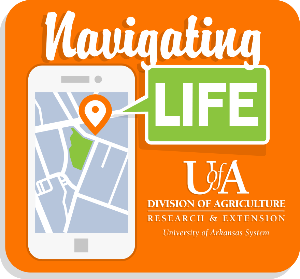
Navigating Life's Journey Blog
Helping others navigate this journey of Life!
A weekly blog from the Family & Consumer Sciences Department
Day 6: #SleepWellSunday
Day 6 It’s #SleepWellSunday. A good night’s sleep can often be the first thing we sacrifice to make sure all of our daily demands are taken care of, but sleep is about so much more than just shutting your eyes. When we don’t get enough sleep, our bodies don’t have time to repair organs and flush toxins from our brains, which can increase the risk of developing high blood pressure, heart disease, diabetes, and symptoms of mental health disorders. In fact, people with mental health disorders experience sleep problems at a much higher rate than those without mental health disorders.
Ways to Track Your Sleep:
- The old-fashioned way: Look at the clock before you fall asleep and make a note (mentally or on paper) of when it was, then when you wake up, do the math and figure out how many hours of sleep you got.
- The wearable way: Wearable devices can help you track not only how many hours of sleep you are getting, but how much time you spend in different sleep stages based on your heart rate. Many models of Fitbit have the ability to track sleep, and the Apple Watch can track sleep when you use it with apps like Sleep Tracker. Other lesser known wearable devices like the Jawbone Up, Garmin VivoSmart HR+, Basis Peak, Misfit Shine 2, Leaf Urban (which can be worn as a bracelet or on a necklace) and the Oura Ring (it’s a ring for your finger) also have sleep tracking functions.
- The smart phone way: Staring at your phone for long period of time before bed can mess up your sleep, but you don’t even have to look at your phone for it to be a useful tool for tracking your sleep. Free apps like SleepBot, Sleep Better sleep cycle alarm clock, Sleep Cycle alarm clock, and Sleep Time are able to track sleep patterns based on the movements and sounds you make while you are snoozing when placed either on a table next to your bed or on your bed beside your pillow.
Today’s challenge is all about tracking your sleep to figure out if you are getting enough. Starting tonight we want you to track how much sleep you’re getting each night. Post tomorrow with how much sleep you got and whether or not you’re feeling well-rested in the morning (don't forget to use #UAEX4MIND4BODY and tag Navigating Life ).
Get more information about how sleep affects the body here.
Reference: Mental Health America